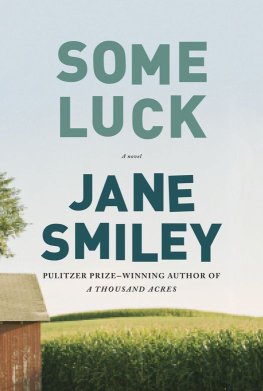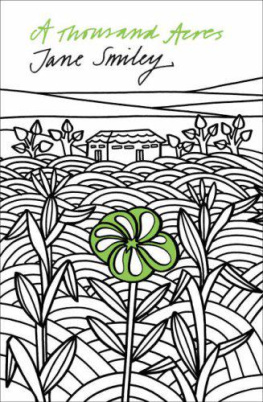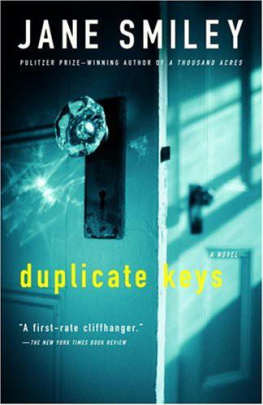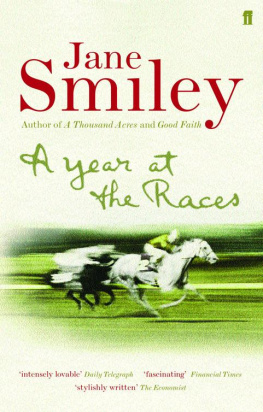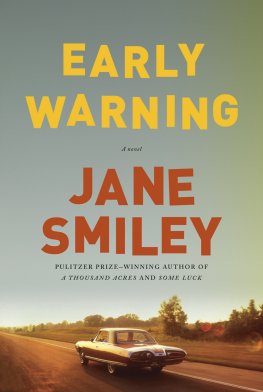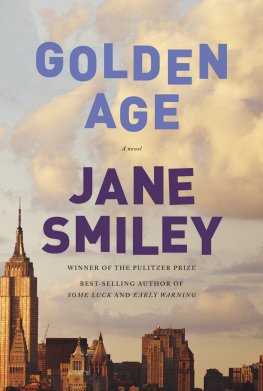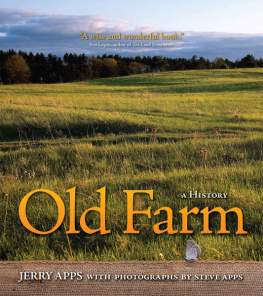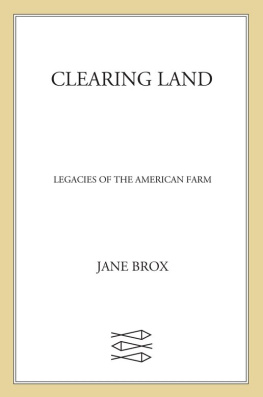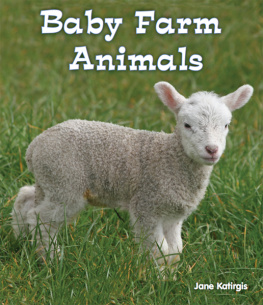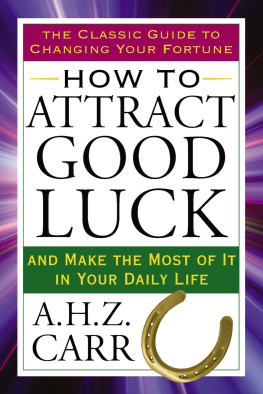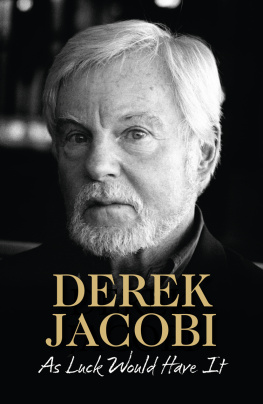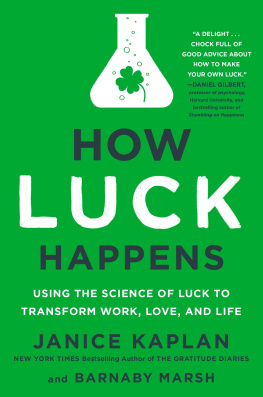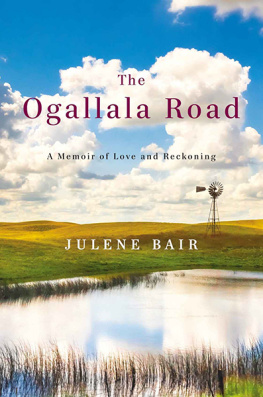This trilogy is dedicated to John Whiston, Bill Silag, Steve Mortensen, and Jack Canning, with many thanks for decades of patience, laughter, insight, information, and assistance.




WALTER LANGDON HADNT WALKED OUT to check the fence along the creek for a couple of months now that the cows were up by the barn for easier milking in the winter, hed been putting off fence-mending so he hadnt seen the pair of owls nesting in the big elm. The tree was half dead; every so often Walter thought of cutting it for firewood, but he would have to get help taking it down, because it must be eighty feet tall or more and four feet in diameter. And it wouldnt be the best firewood, hardly worth the trouble. Right then, he saw one of the owls fly out of a big cavity maybe ten to twelve feet up, either a big female or a very big male at any rate, the biggest horned owl Walter had ever seen and he paused and stood for a minute, still in the afternoon breeze, listening, but there was nothing. He saw why in a moment. The owl floated out for maybe twenty yards, dropped toward the snowy pasture. Then came a high screaming, and the owl rose again, this time with a full-grown rabbit in its talons, writhing, going limp, probably deadened by fear. Walter shook himself.
His gaze followed the owl upward, along the southern horizon, beyond the fence line and the tiny creek, past the road. Other than the big elm and two smaller ones, nothing broke the view vast snow faded into vast cloud cover. He could just see the weather vane and the tip of the cupola on Harold Grubers barn, more than half a mile to the south. The enormous owl gave the whole scene focus, and woke him up. A rabbit, even a screaming rabbit? That was one less rabbit after his oat plants this spring. The world was full of rabbits, not so full of owls, especially owls like this one, huge and silent. After a minute or two, the owl wheeled around and headed back to the tree. Although it wasnt yet dusk, the light was not very strong, so Walter couldnt be sure he saw the feathery horns of another owl peeking out of the cavity in the trunk of the elm, but maybe he did. He would think that he did. He had forgotten why he came out here.
Twenty-five, he was. Twenty-five tomorrow. Some years the snow had melted for his birthday, but not this year, and so it had been a long winter full of cows. For the last two years, hed had five milkers, but this year he was up to ten. He hadnt understood how much extra work that would be, even with Ragnar to help, and Ragnar didnt have any affinity for cows. Ragnar was the reason he had more cows he needed some source of income to pay Ragnar but the cows avoided Ragnar, and he had to do all the extra milking himself. And, of course, the price of milk would be down. His father said it would be: it was two years since the war, and the Europeans were back on their feet or at least back on their feet enough so that the price of milk was down.
Walter walked away from this depressing thought. The funny thing was that when he told his father that he broke even this year, expecting his father to shake his head again and tell him he was crazy to buy the farm when land prices were so high, his father had patted him on the back and congratulated him. Did breaking even include paying interest on the debt? Walter nodded. Good year, then, said his father. His father had 320 acres, all paid for, a four-bedroom house, a big barn with hay stacked to the roof, and Walter could have gone on living there, even with Rosanna, even with the baby, especially now, with Howard taken by the influenza and the house so empty, but his father would have walked into his room day and night without knocking, bursting with another thing that Walter had to know or do or remember or finish. His father was strict, and liked things just so he even oversaw Walters mothers cooking, and always had. Rosanna hadnt complained about living with his parents it was all Walter wanting his own place, all Walter looking at the little farmhouse (you could practically see through the walls, they were so thin), all Walter walking the fields and thinking that bottomland made up for the house, and the fields were rectangular no difficult plowing or strange, wasted angles. It was all Walter, and so he had no one to blame but himself for this sense of panic that he was trying to walk away from on the day before his birthday. Did he know a single fellow his age with a farm of his own? Not one, at least not around here.
When you looked at Rosanna, you didnt think shed been raised on a farm, had farms all through her background, even in Germany. She was blonde, but slender and perfectly graceful, and when she praised the babys beauty, she did so without seeming to realize that it reproduced her own. Walter had seen that in some lines of cows the calves looked stamped out by a cookie cutter, and even the way they turned their heads or kicked their hind feet into the air was the same as last years calf and the one before that. Walters family was a bastard mix, as his grandfather would say Langdons, but with some of those long-headed ones from the Borders, with red hair, and then some of those dark-haired Irish from Wexford that were supposed to trace back to the sailors from the Spanish Armada, and some tall balding ones who always needed glasses from around Glasgow. His mothers side leavened all of these with her Wessex ancestry (The Chicks and the Cheeks, shed always said), but you couldnt tell that Walters relatives were related the way you could with Rosannas. Even so, of all Rosannas aunts and uncles and cousins, the Augsbergers and the Vogels, Rosanna was the most beautiful, and that was why he had set his heart upon winning her when he came home from the war and finally really noticed her, though she went to the Catholic church. The Langdon and Vogel farms werent far apart no more than a mile but even in a small town like Denby, no one had much to say to folks who went to other churches and, it must be said, spoke different languages at home.
Oh, Rosanna, just twenty, but with the self-possessed grace of a mature woman! He could see her profile as he approached the house in the dusk, outlined by the lamplight behind her. She was looking for him. Just in the tilt of her head, he could see that she had some project in mind. And of course he would say yes to her. After all, no fledgling had it easy, farmer or crow. Hadnt he known since he was a boy the way the fledglings had to fall out of the nest and walk about, cheeping and crying, until they grew out their feathers and learned to fly on their own? Their helpless parents flew above them, and maybe dropped them a bit of food, but flying or succumbing belonged to them alone. Walter put his foot on the first step of the porch, and felt his customary sense of invigoration at this thought. On the porch, he stamped two or three times, and then slipped out of his boots. When the door opened, Rosanna drew him in, and then slipped her arms inside his unbuttoned jacket.
ON THE FRONT PORCH, sitting up (he had just learned to sit up) on a folded blanket, Frank Langdon, aged five months, was playing with a spoon. He was holding it in his right hand by the tarnished silver bowl, and when he brought it toward his face, his eyes would cross, which made Rosanna, his mother, laugh as she shelled peas. Now that he was sitting, he could also drop the spoon, and then, very carefully, pick it up again. Before learning to sit, he had enjoyed lying on his back and waving the spoon in the air, but if he dropped the spoon, it was gone. This was no longer the case. One of the qualities Rosanna attributed to little Frank was persistence. If he was playing with the spoon, then it was the spoon he wanted to play with. If he dropped the spoon, and she happened to give him a sock doll (the sock doll that her sister, Eloise, had sewn just for Frank), Frank would fuss until she gave him the spoon. Now, sitting up, he put the spoon down and picked it up and put it down and picked it up. Although he much preferred the spoon to the doll, Rosanna always told Eloise and her mother how much Frank liked the doll. Eloise was now knitting him a wool hat. It was her first knitting project; she expected to have it done before October. Rosanna reached into the basket of pea pods and took the last handful. She didnt mind shelling peas.

